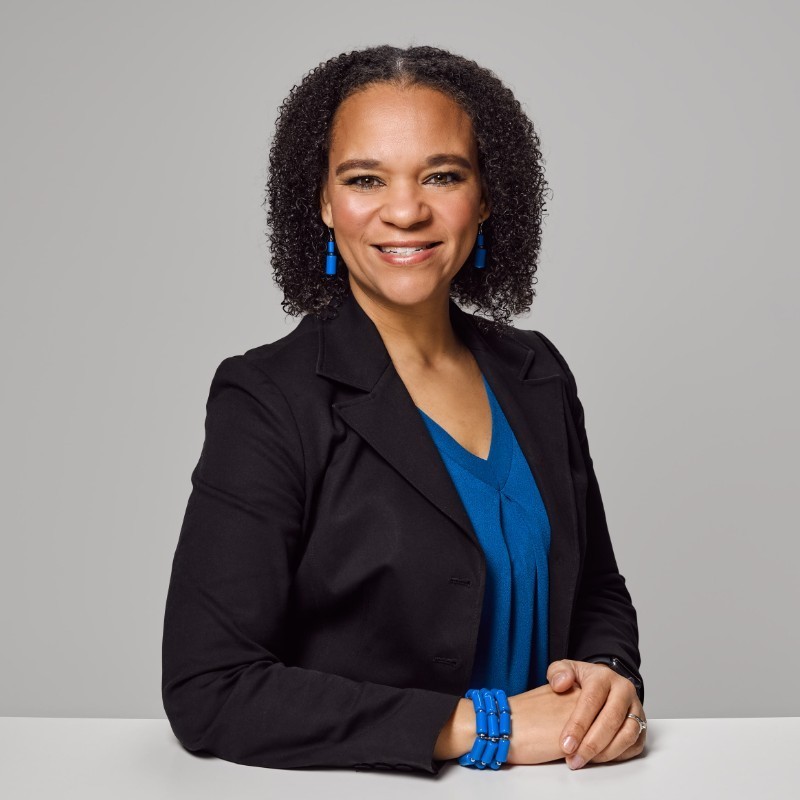 Not wanting to appear overly negative, and emphasizing she would focus on solutions, American Retirement Association (ARA) member Apryl Pope, co-founder of Cincinnati-based Retirement Plan Partners, delivered stark statistics about the state of retirement saving for traditionally marginalized communities.
Not wanting to appear overly negative, and emphasizing she would focus on solutions, American Retirement Association (ARA) member Apryl Pope, co-founder of Cincinnati-based Retirement Plan Partners, delivered stark statistics about the state of retirement saving for traditionally marginalized communities.
Presenting to attendees of a U.S. Black Chamber of Commerce-sponsored webinar, she referenced preparation she conducted for a presentation at the National Association of Plan Advisors 401(k) Summit in 2021 and found 56% of Black families do not own any assets in a retirement account.
Additionally, working Black American households with incomes over $60,000 average $54,000 in retirement assets. That compares with the general population, who average $276,000 in retirement assets. With emergency savings, it's $9,000 versus $24,000.
"My concern is we are very far behind as a community, and it's crucial to close that gap," she said. "Folks say they want to provide generational wealth and break the cycle of starting over every generation. Well, we need to do something about it. We have the resources, assets, and money; we just have to put ourselves first and save for retirement."
She began to think differently about the importance of retirement planning as a young Peace Corps volunteer in a village in South Africa with no running water and the nearest paved road miles away. Her host family's matriarch held a seemingly endless number of jobs and responsibilities.
"These families didn't have to think about the conventional idea of retirement like we do here," Pope explained. "There was no concept of working for 30 years and getting a gold watch and collecting Social Security."
Instead, it was about working, raising children, and helping until they could no longer, at which point their families and the community took over to care for them.
"It was straightforward and relieving to think about it. Here in the United States, it's much different. We must use these accounts with weird tax codes and figure this out on our own."
One reason Black and Hispanic workers lag is that they prioritize others when assisting financially. Their primary financial goal is to provide college tuition for children, followed by parental/family member care, giving to charity, and helping children with a down payment. Their own retirement and saving didn't rank in the top five.
"We need to think about taking care of ourselves first," she added. "There is no loan for retirement."
Pope mentioned a second reason — a lack of access — and that only 48% of Black families work for an employer that offers a plan.
"If anybody's listened to anything that the ARA or retirement plan advisors are talking about, you'll know that, in general, you're 12 times more likely to save for retirement if you have a workplace plan. It's easy; it's just going to come out of your check.”
The Census Bureau's annual survey of entrepreneurs found there are over 1.1 million minority-owned businesses and 8.7 million employees. Offering a workplace plan through these businesses is part of the solution.
"We and the USBC want to make sure if you're a business owner, you can start a plan, so you need to do this."
Launching into a description of Secure 2.0, she explained the Small Employer Pension Plan Start-up Credit Modification, noting it's almost like "free money" to start a retirement plan.
It establishes a new credit and expands an existing credit, specifically increasing the start-up credit to 100% for companies with 50 or fewer employees. The existing cap of $5,000 per employer would be retained. The new credit offsets up to $1,000 of employer contributions per employee in the first year, phased down gradually over 5 years. It applies to companies with 100 or fewer employees. However, it is phased out for those with more than 50 employees. And there is no credit for contributions to any employee making more than $100k (indexed after 2023).
She also mentioned upcoming provisions that will further ease implementation and saving, including the student loan, emergency savings, and Starter 401(k) features.
"These are dollars in your pocket that are literally paying you to start a plan," Pope concluded. "These incentives are literally saying, 'We want to remove the cost burden and get people to start saving for retirement."
- Log in to post comments
